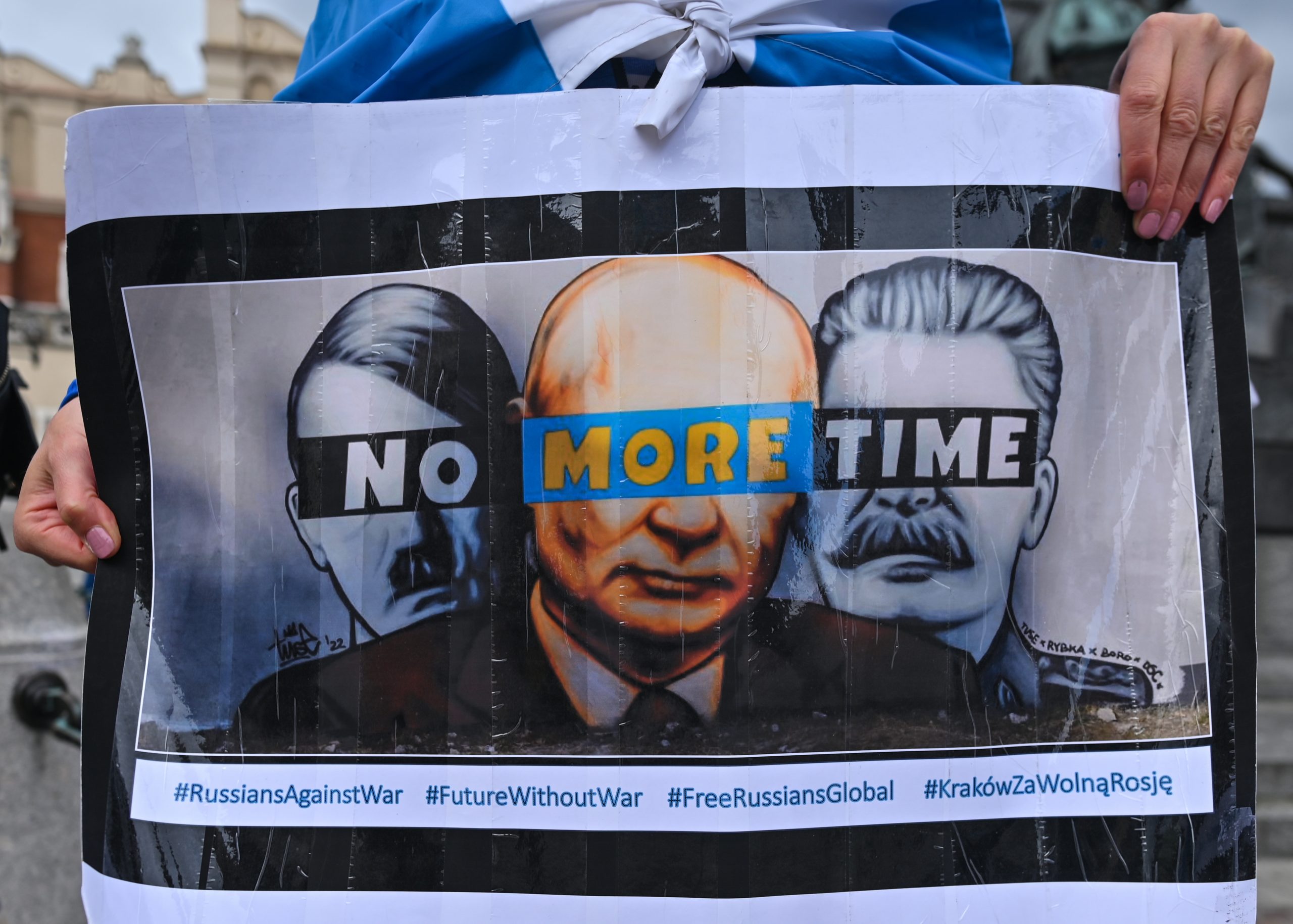Edward Lucas

Vladimir Putin cannot win. But Ukraine can. The only questions are when, at what cost, to what extent — and what happens next. That is the verdict after seven months of the bloodiest and most destructive war Europe has suffered since 1945. Ukraine’s army is already bigger and more effective than Russia’s. It gets stronger every day. The Kremlin’s armed forces are disintegrating before our eyes, demoralized (literally) by their bad leadership, botched planning, and poor logistics.
Don’t take my word for it. Look at Russian talk shows, the sounding boards for the Kremlin propaganda machine. Nobody now believes this is just a “special military operation”. The word “war” — once taboo — is spoken regularly. Recent military setbacks are discussed openly too. Asked to explain the loss of the logistics hub of Lyman, Andrey Gurulyov, the once-bombastic former deputy commander of Russia’s southern military district, blamed “constant lying”, from the bottom to the top. Seconds later, his Skype connection dropped. Maxim Yusin, a political editor on state television, said: “It’s hard to argue with dreamers who live in their own world”. That sounds like a barely veiled attack on Putin’s delusionary bombast. As military practicalities and political aims diverge, the Russian leader has scored a geopolitical first. He is claiming to have annexed territory from which his forces are in headlong retreat.
Amid all this, the immediate priority is to support Ukraine. Russia can and will still inflict yet more horrible damage on its people and infrastructure. But I discussed with my old friend Anne Applebaum at an event in London this weekend, the answer is clear: in the words of Warren Zevon, “send money, guns, and lawyers”. Cash will stabilize Ukraine’s economy. Weapons will bring victory. And lawsuits will cripple the Kremlin’s war machine. We know what to do. We have, just have, to do it.
The much harder question is what comes next. Putin may not survive defeat on the battlefield. But Russia’s kleptocratic, imperialist regime is far more durable than any individual. My big worry is that a post-Putin junta fools the West, offering a “reset” in relations in return for a ceasefire in Ukraine and a resumption of gas supplies. The right answer will be a firm “no”. The only acceptable peace must involve reparations, war-crimes trials, unchallenged NATO membership for Ukraine, and the return of occupied territories. If Ukraine’s leadership wants something different, that is their prerogative. But there should be no Western arm-twisting to accept Russia’s agenda.
Centring Western strategy on the needs and concerns of our frontline allies is long overdue. For three decades, decision-makers in Washington DC, Brussels, Berlin, and elsewhere have spent far too much time worrying about Russia and Russians, and far too little time thinking about the countries that know their giant neighbor best and have suffered from its depredations most. Ukrainians (and Chechens, Georgians, and others) have paid a grievous price for the colossal failure of the West’s Russia strategy since 1991. It wasn’t a democracy, even a pretend one. It really was an empire.
Now we need a new strategy. It must be ready to deal with many eventualities.
They include:A grindingly slow end to the Putin era, or his rapid departure.
A seemingly smooth transfer of power, or a disorderly one.
A desire (however superficial) for rapprochement with the West, or intensified enmity.
Centrifugal forces tearing Russia apart, or an attempt to re-establish central control by force.
I don’t know the answers (though I’m working on them). But the key should be humility about our ability to predict or determine developments inside Russia, and resolve in defending our allies.
No comments:
Post a Comment